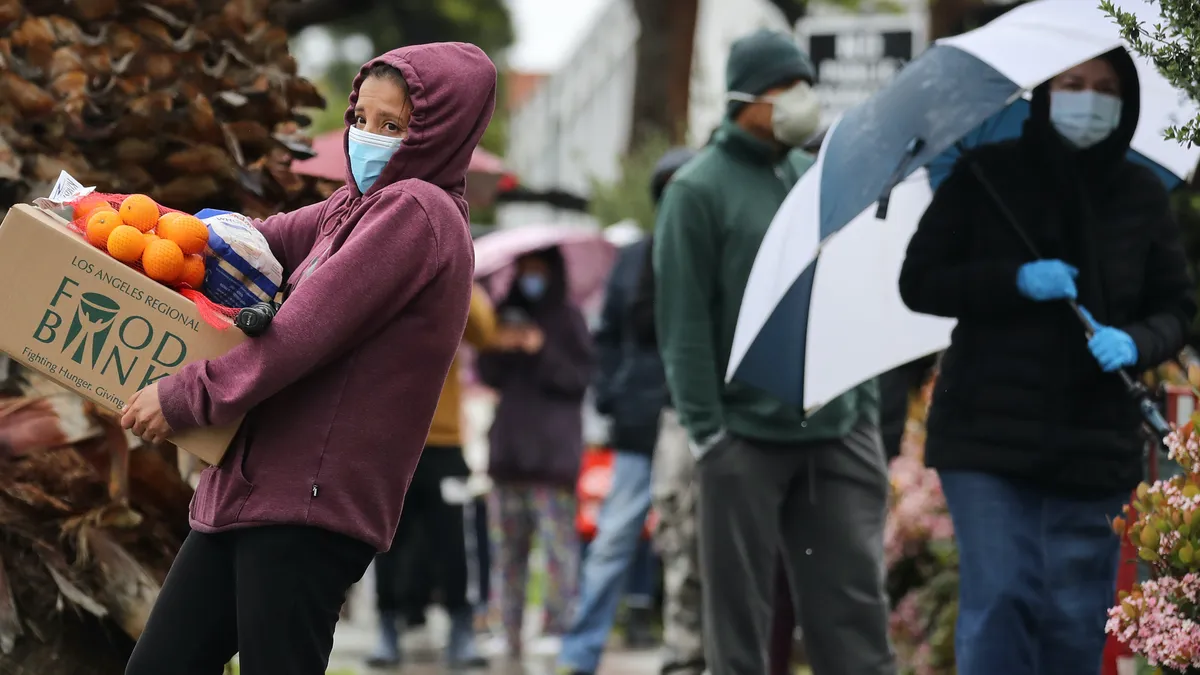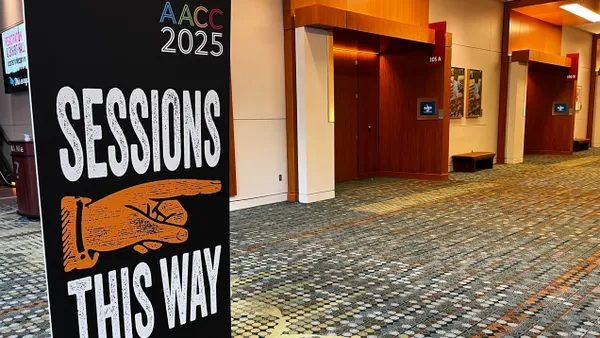Dive Brief:
- A majority of food-insecure community college students, 56%, said their college did not provide food assistance, according to a new report released Wednesday by the Center for Community College Student Engagement. That's despite 29% of students qualifying as having low food security.
- One in five students said they skipped meals or ate less because they didn't have enough money for food, the report said. Researchers also found that some students tried to save food for days they had class.
- Housing costs challenged students as well. More than one in four respondents, 27%, said they were unable to cover their living expenses in full at least once in the past year. And 14% qualified as having a low level of housing security.
Dive Insight:
Food insecurity research has found that college students who go hungry are at a higher risk of poor academic performance and stopping out. In 2021, a survey of Utah students found that those facing food insecurity had an average GPA of 3.4, compared to a 3.59 average among their food-secure counterparts.
The Center for Community College Student Engagement, or CCCSE, is a research group at the University of Texas at Austin. For its new report covering basic needs security among community college students, researchers surveyed 82,424 students at 194 community and technical colleges across the country in spring 2021.
Of the students surveyed, 69% said a lack of finances could cause them to withdraw from college. Students with dependent children, who made up about a third of the survey respondents, were more likely to face food and housing insecurity than those without children, the report found.
About one-quarter of students without children, 27%, said they ran out of food and didn't have the money to buy more at least once in the last month. The rate was higher for those with dependent children at 34%.
Information about a student's home life often won't show up on their application, so colleges need to be proactive about identifying specific student needs, according to Linda García, executive director at CCCSE.
"It's important to ask upfront in that very first advising session about what life is like beyond college," she said. "If we have these conversations later, it's often already too late and we find out after they withdraw.”
Researchers profiled colleges that successfully connected students with resources, like Ozarks Technical Community College in Missouri.
Ozarks Technical provides free breakfast to everyone with a valid student ID when classes are in session. When the program first launched on one campus, the college found that students who participated earned higher grades on their midterms and finals than students who didn't, according to the report. Ozarks Technical then expanded the breakfast program to all six of its campuses.
Because students don't need to demonstrate need, less stigma is attached, according to García. She said many colleges successfully promote student resources without requirements and distribute with discretion.
"They make sure that the food pantry is marketed to all students, not saying this food pantry is only for students who meet X, Y and Z requirements," García said. "There was one college that said if someone comes to the food pantry, they would put their items in the bookstore bag, like they would have gotten had they purchased books."














